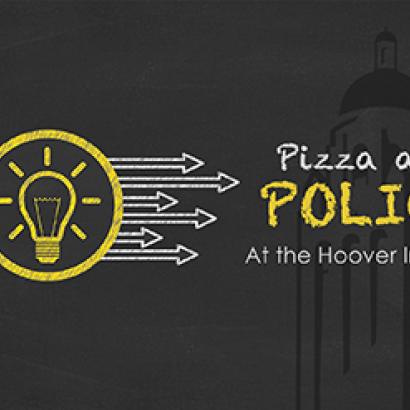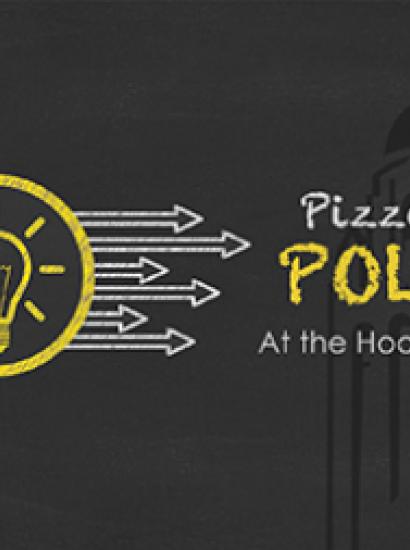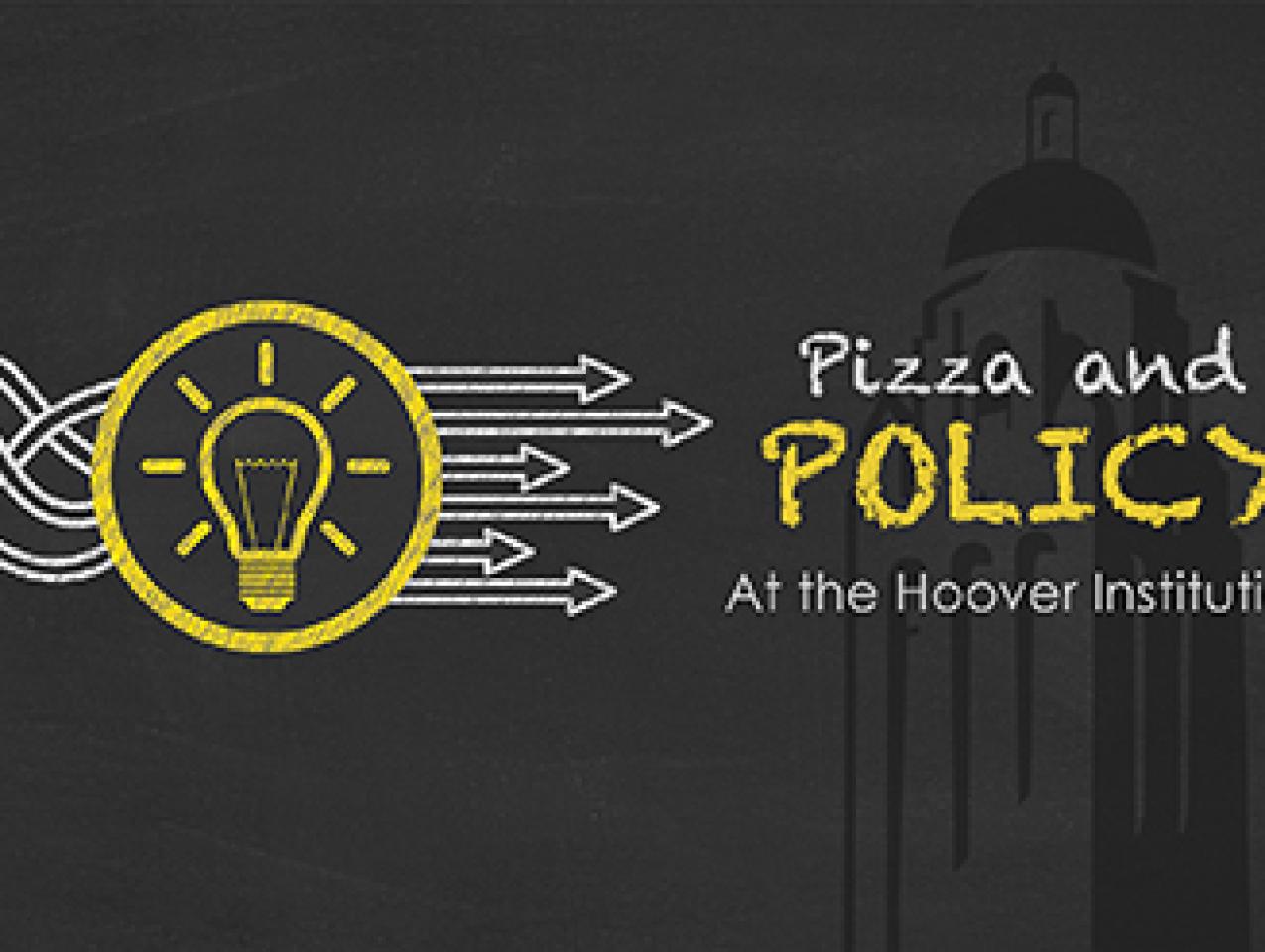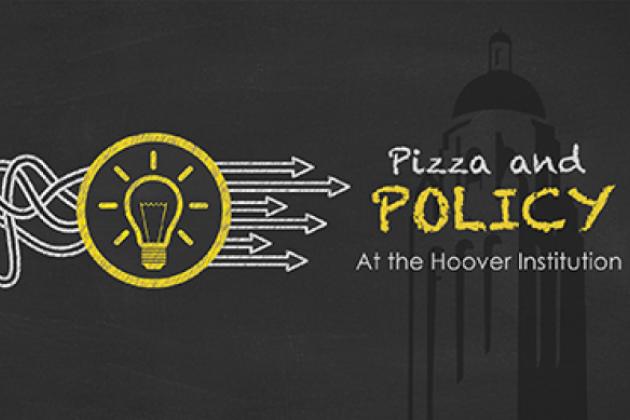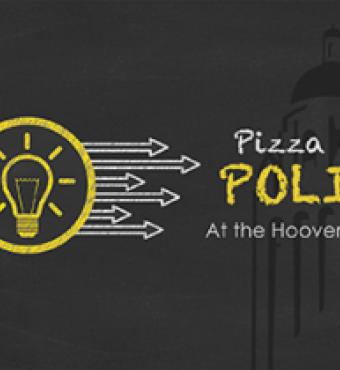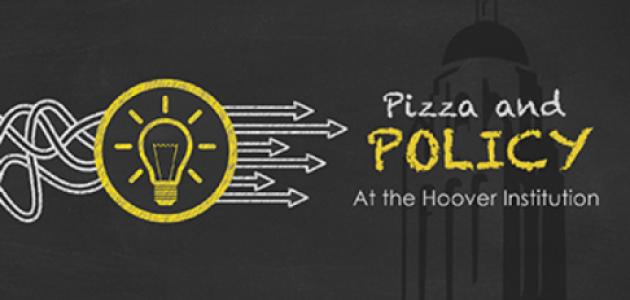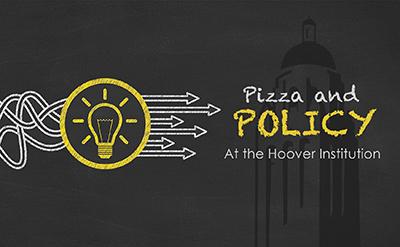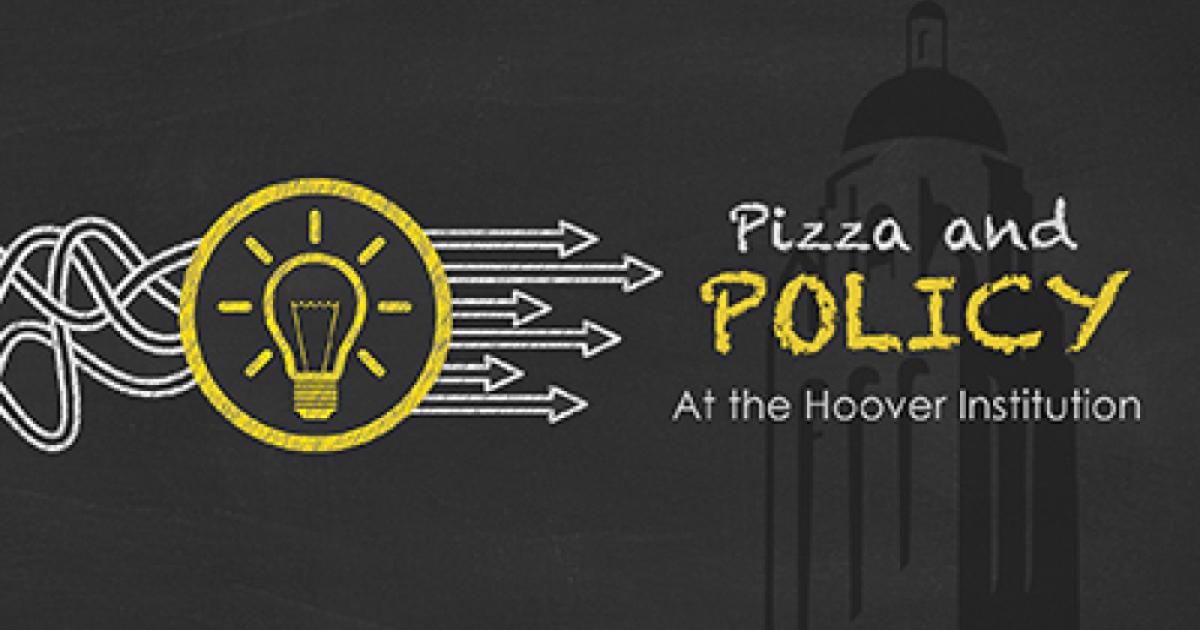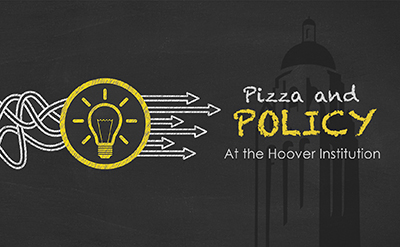
On November 28, 2018, the Hoover Institution hosted a packed room of Stanford students for a Pizza and Policy event featuring H. R. McMaster, who recently returned to Hoover as the Fouad and Michelle Ajami Senior Fellow after serving in the Trump Administration as national security adviser.
Pizza and Policy connects Stanford students interested in public policy with the history-making researchers and government leaders who share the campus as fellows at the Hoover Institution. Each event includes a pizza dinner and a short talk by a Hoover fellow, followed by an open question-and-answer session where students lead the discussion.
More than one hundred students, ranging from undeclared freshmen to engineering graduate students, attended the November talk, which was the first event in the newly revamped Pizza and Policy series.
McMaster began with the story of his almost overnight transition into the role of national security adviser, interviewing for the job over Presidents’ Day weekend in 2017 and starting early the following week. “Not a whole lot of time to prepare,” McMaster joked—but through thirty-four years of leadership in the army and extensive academic work in military history and strategy, he was immensely equipped for the job.
“I felt that we were really behind,” McMaster told students, discussing the mindset he brought to the White House and the US security climate inherited by the president. He explained that the post–Cold War world had bred overconfidence among America’s military and foreign policy leaders, who neglected age-old lessons about strategy and warfare as they entered into conflicts in Afghanistan and Iraq.
The unexpected complexity and duration of these wars, McMaster continued, then led to a “pendulum swing from overconfidence to defeatism,” as US leaders sought withdrawal from conflicts without full consideration of strategic implications or geopolitical repercussions. McMaster took office determined to rebuild the strategic framework underlying US military action. He explained step by step how he and the broader national security team created a system that allowed the National Security Council to evaluate threats, formulate policy options for the president, and guide agencies in implementing the president’s decisions.
Less than fifteen minutes after beginning his talk, McMaster opened the floor to a Q&A session that lasted more than an hour, with challenging questions proving that students hadn’t just come for pizza. The discussion ranged from the philosophy and ethics of war, to the future of US involvement in Afghanistan and Syria, to stories about McMaster’s time in the White House. Right at home in the casual atmosphere, McMaster also cracked plenty of jokes, likening the poor planning for consolidating military gains in Afghanistan and Iraq, for example, to a “George Costanza approach to war” in which leaders believe they can “leave on a high note.”
“For Pizza and Policy, we seek to bring multiple different and diverse student groups together to foster interdisciplinary discussions,” explained Griffin Bovee, a Stanford undergraduate and the lead student organizer for the series.
“Pizza and Policy offers students a chance to diversify and deepen their education outside of the classroom,” he continued, “by informally engaging with researchers and policymakers they might not otherwise hear from.”
The Hoover Institution will continue to host Pizza and Policy events once per quarter, and all Stanford students are welcome to attend. For more information or to be added to the Pizza and Policy email list, contact hoovermarketing@stanford.edu.







